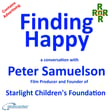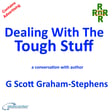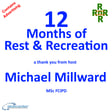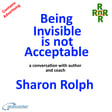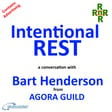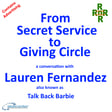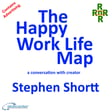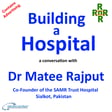
Understanding Burn Out – a conversation with Serban Mare
Living the American dream led to burn out for Serban Mare, who then learnt how to recover from burn out.
Serban Mare believes that achieving high performance at work should not result in someone losing their health or sacrificing their happiness.
Serban was born in Romania and emigrated to the USA when he was 23 years old. Over the following ten years he lived the American dream until he stopped living that dream and realised, he had reached the point of burn out.
In this episode of Rest and Recreation, the work life balance podcast from Abeceder Serban explains to host Michael Millward what burn out looks and feels like for the person who is living through it.
Michael and Serban discuss the lead-up to the point at which Serban realised he had reached burn out and the warning signs as he approached that point that he did no know about.
They explore all the things that ambitious people can do to prevent themselves reaching burn out, and how Serban brought himself back from burn out to now running a successful business helping organisations to support their employees to be successful with risking burnout.
At some point in this episode, you will undoubtedly feel that you have heard Serban and Michael talking about you.
Listen now and learn how to protect yourself from burn out.
You can find more information about both Serban and Michael at ABECEDER.co.uk
Audience Offers
Rest and Recreation is made on Zencastr, because creating podcasts on Zencastr is so easy, you can as well by visiting Zencastr and using our offer code ABECEDER.
Travel – Holidays can play an important part in preventing burn out. So take a break at trade prices to anywhere in the world on trains, flights, hotels, and holidays as members of The Ultimate Travel Club.
Health – York Test provides an Annual Health Test. An experienced phlebotomist will complete a full blood draw at your home or workplace. Hospital standard tests covering 39 different health markers are carried out in a UKAS-accredited and CQC-compliant laboratory.
Visit York Test and use this discount code REST25.
Tech Problems? – Visit Three for information about business and personal telecom solutions from Three, and the special offers available when you quote our referral code WPFNUQHU.
If you have liked this episode of Rest and Recreation, please give it a like and download it. To make sure you do not miss future editions please subscribe.
Remember, the aim of all the podcasts produced by Abeceder is not to tell you what to think, but we do hope to make you think!
Being a Guest
If you would like to be a guest on Rest and Recreation, please contact Abeceder.
Matchmaker.fm introduce many guests to Rest and Recreation. Matchmaker.fm is where great hosts and even greater guests are matched, and fantastic podcasts are hatched. Use code MILW10 for a discount on membership.
We recommend that potential guests take one of the podcasting guest training programmes available from Work Place Learning Centre.
Thank you to you for listening.
We appreciate every like, download, and subscription.



